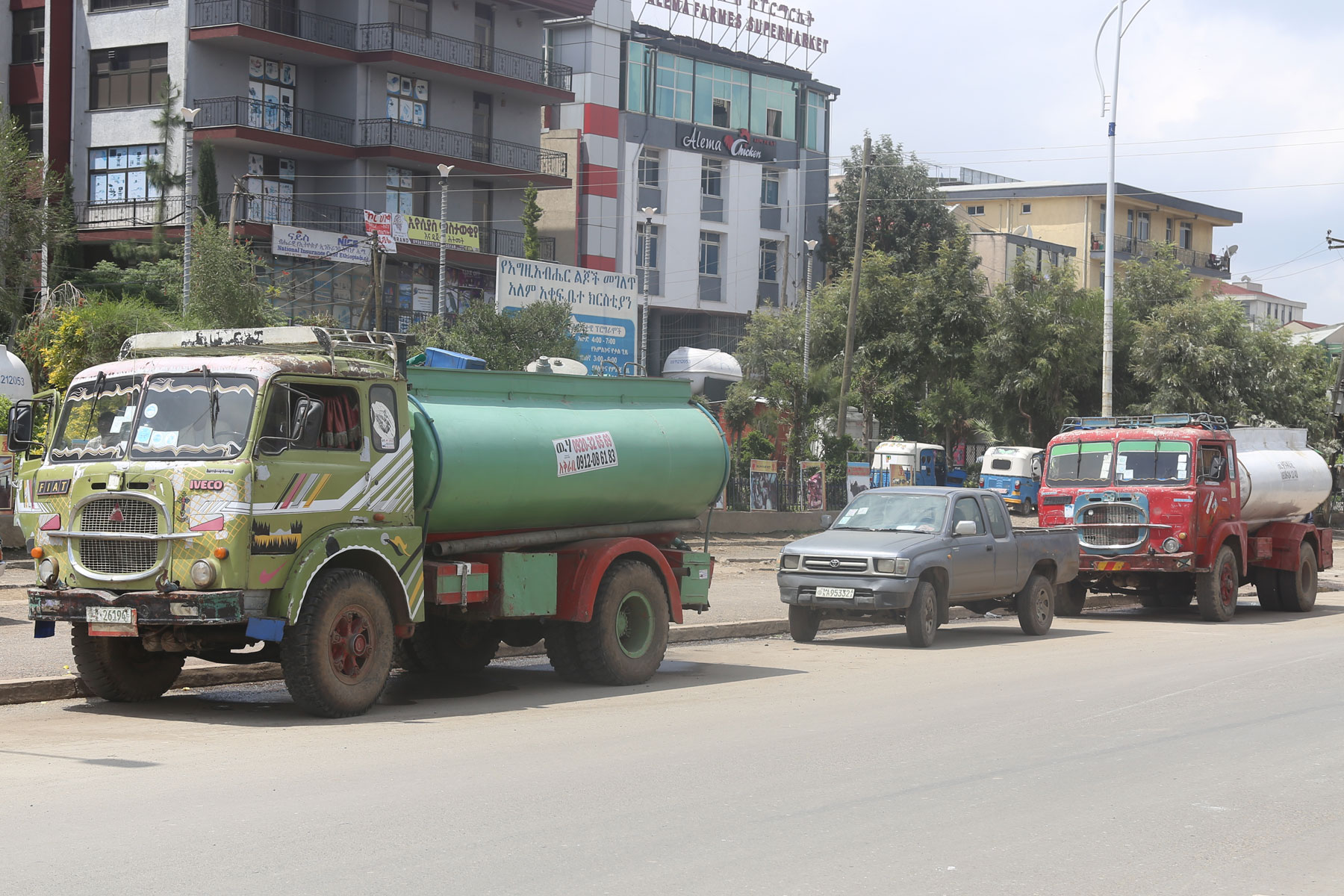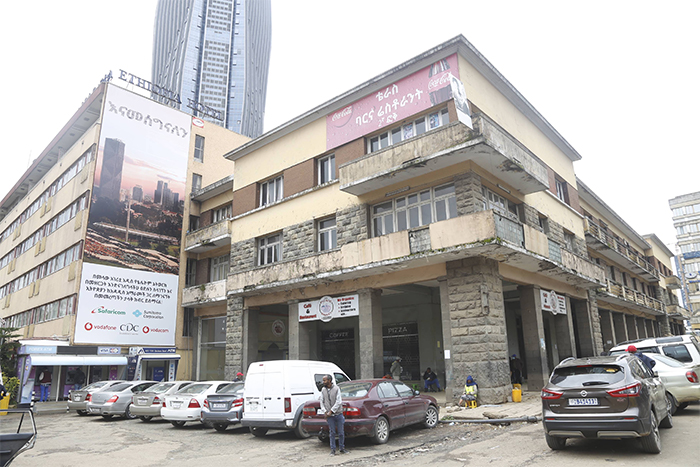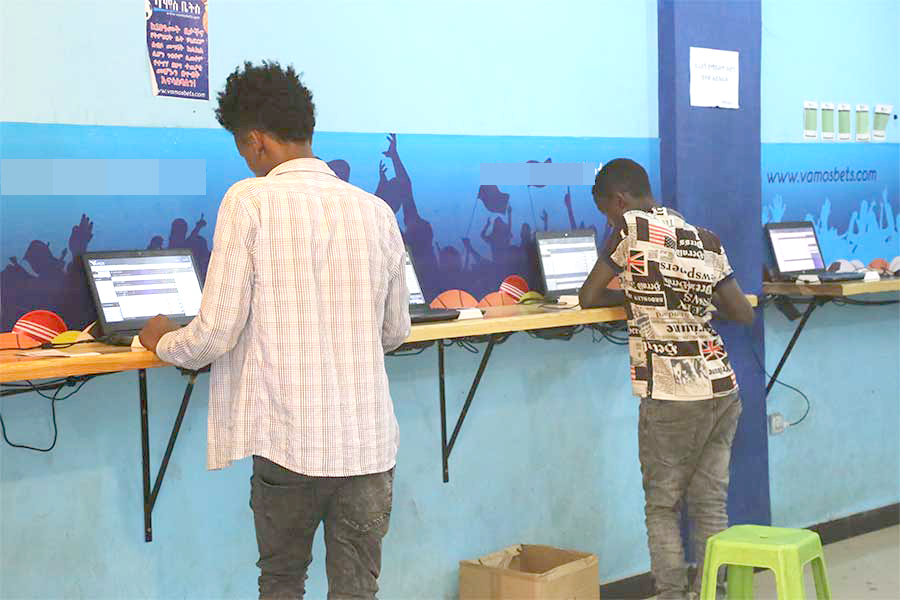
Feb 16 , 2019
By BERHANE HAILEMARIAM ( FORTUNE STAFF WRITER )
 Krotaj Tahini Manufacturers Plc, a 4.5-million-dollar joint venture, has launched its tahini processing plant on the outskirts of the capital.
Krotaj Tahini Manufacturers Plc, a 4.5-million-dollar joint venture, has launched its tahini processing plant on the outskirts of the capital. Krotaj Tahini Manufacturers Plc, a 4.5-million-dollar joint venture, has launched its tahini processing plant on the outskirts of the capital.
Formed between K. Mikedem of Ethiopia; RENEW Investment Strategies LLC of the United States; and the four-year-old Israeli firm, J & O, the new plant is located at Haile Garment in Nifas Silk, Laphto District.
Krotaj will produce tahini, a value-added product from Humera sesame seeds. The product is popular in international food markets and is used as snack or garnish in various middle eastern countries.
Production of tahini entails sifting and cleaning sesame seeds, hulling, misting, steam roasting, grinding and packaging, according to Daniel Adugna, chief operations officer at the factory.
Ethiopia is the fourth largest producer of sesame seeds, producing 350,000tn a year, and is the third largest sesame seed exporting country in the world, supplying 14pc of the global market.
Export earnings from sesame grew by 2.4pc from 2010 to 2014, according to the Agricultural Transformation Agency and USAID investment support program.
The company can produce 3,700tn of tahini annually, and exports to Israel alone will generate 10 million dollars, according to Mulugeta Kidanemariam (PhD), CEO of the company.
Krotaj has 12 permanent and more than 60 temporary employees, a number that may fluctuate depending on orders for the product.
Currently, the export is packaged in 18kg buckets. The value-added product generates up to 600 dollars a ton more than exporting sesame seeds the conventional way, according to Mulugeta.
Krotaj is the fourth company to export sesame seeds and the second company to produce tahini along with Ambasel Trading. Selit Hulling Plc and Olira Agro-Industry Plc export hulled sesame seeds as semi-processed sesame seeds, according to Habtamu Taye, director of oilseeds processing at the Food, Beverages & Pharmaceutical Products Industry Development Institute.
Oilseeds are the second largest export crop next to coffee in Ethiopia.
Among the different oil crops, sesame is the second most important agricultural commodity in terms of foreign exchange earnings, accounting for more than 449 million dollars.
Sesame seeds grow in the Tigray, Amhara, Gambella, Benshangul Gumuz, Somalia, SNNP and Oromia regions in Ethiopia.
Mohammed Aman, assistant professor of agri-economics and agri-business at Haromaya University, is positive on the export of sesame products, as they are generating hard currency for the country.
"The value addition concept is more than that of export and generating hard currency," Mohammed said.
It should be clearly stipulated who the value chain actors are, how they have interlinked with each other, what activity each actor has in the process and how do the actors share the benefit, he recommended.
PUBLISHED ON
Feb 16,2019 [ VOL
19 , NO
981]

Commentaries | Jan 07,2024

View From Arada | Jun 07,2020

Fortune News | Apr 28,2024

Fortune News | Jul 18,2021

Fortune News | Sep 27,2020

Radar | Aug 24,2019

Fortune News | Feb 02,2019

Fortune News | Sep 14,2024

Radar | Jul 15,2023

Agenda | Dec 10,2022

Dec 22 , 2024 . By TIZITA SHEWAFERAW
Charged with transforming colossal state-owned enterprises into modern and competitiv...

Aug 18 , 2024 . By AKSAH ITALO
Although predictable Yonas Zerihun's job in the ride-hailing service is not immune to...

Jul 28 , 2024 . By TIZITA SHEWAFERAW
Unhabitual, perhaps too many, Samuel Gebreyohannes, 38, used to occasionally enjoy a couple of beers at breakfast. However, he recently swit...

Jul 13 , 2024 . By AKSAH ITALO
Investors who rely on tractors, trucks, and field vehicles for commuting, transporting commodities, and f...

Jun 28 , 2025
Meseret Damtie, the assertive auditor general, has never been shy about naming names...

Jun 21 , 2025
A well-worn adage says, “Budget is not destiny, but it is direction.” Examining t...

Jun 14 , 2025
Yet again, the Horn of Africa is bracing for trouble. A region already frayed by wars...

Jun 7 , 2025
Few promises shine brighter in Addis Abeba than the pledge of a roof for every family...